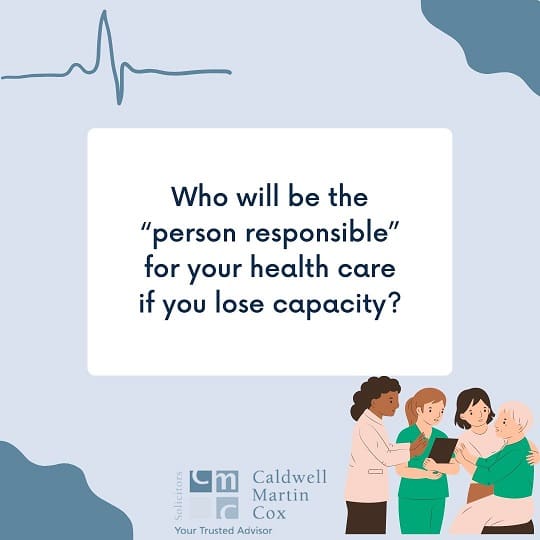There are special laws in place in New South Wales for people over the age of 16 years who are not able to consent to medical treatment. This includes people who do not understand the general nature and effect of the treatment or cannot communicate their consent to treatment.
The Guardianship Act 1987 sets out a hierarchy of the persons responsible for making decisions about medical treatment for incapable people. In order, these are: a guardian including an enduring guardian appointed under an Appointment of Enduring Guardian where the power to consent to medical and/or dental treatment has been given to the guardian; a spouse or de facto spouse who has a close and continuing relationship with the person; a carer or a person who regularly arranges care and is unpaid (a carer’s pension does not count as payment); the carer of the person before they went to live in residential care; or a close friend or relative. A close friend or relative is a person who maintains both a close personal relationship with you through frequent personal contact and a personal interest in your welfare.
Your children are not automatically the “person responsible” for making decisions about your health care unless they fall within one of these categories.
The law also sets out a range of circumstances in which treatment may be needed including urgent, minor, major or special treatment and lists who can make decisions for such treatment on your behalf if you have lost capacity. First aid is not considered to be medical treatment and consent is not needed.
In urgent circumstances, consent from the person responsible is not required if the treatment is required to save the person’s life or prevent serious damage to their health or to alleviate significant pain or distress.
For most of the other categories of treatment, the person responsible can provide the consent and if there is no person responsible or they cannot be located, the consent can be provided by the Guardianship Division of the NSW Civil and Administrative Tribunal.
There are some types of treatment, called special treatment, which include more experimental treatments, treatments relating to fertility, participation in a clinical trial or giving medication to control a person’s behaviour where the person responsible cannot consent. Only the Tribunal can order that these treatments take place.
If you wish to nominate the person or persons you would like to make medical decisions for you if you lose capacity, you should consider making an Appointment of Enduring Guardian. This document sets out the types of health and lifestyle decisions which you will allow to be made for you, including palliative care decisions. You can only make an Appointment of Enduring Guardian if you have the capacity to understand the nature and effect of the document.
To plan for the future, make an appointment to see one of our Estate Planning solicitors today to discuss appointing a guardian.

